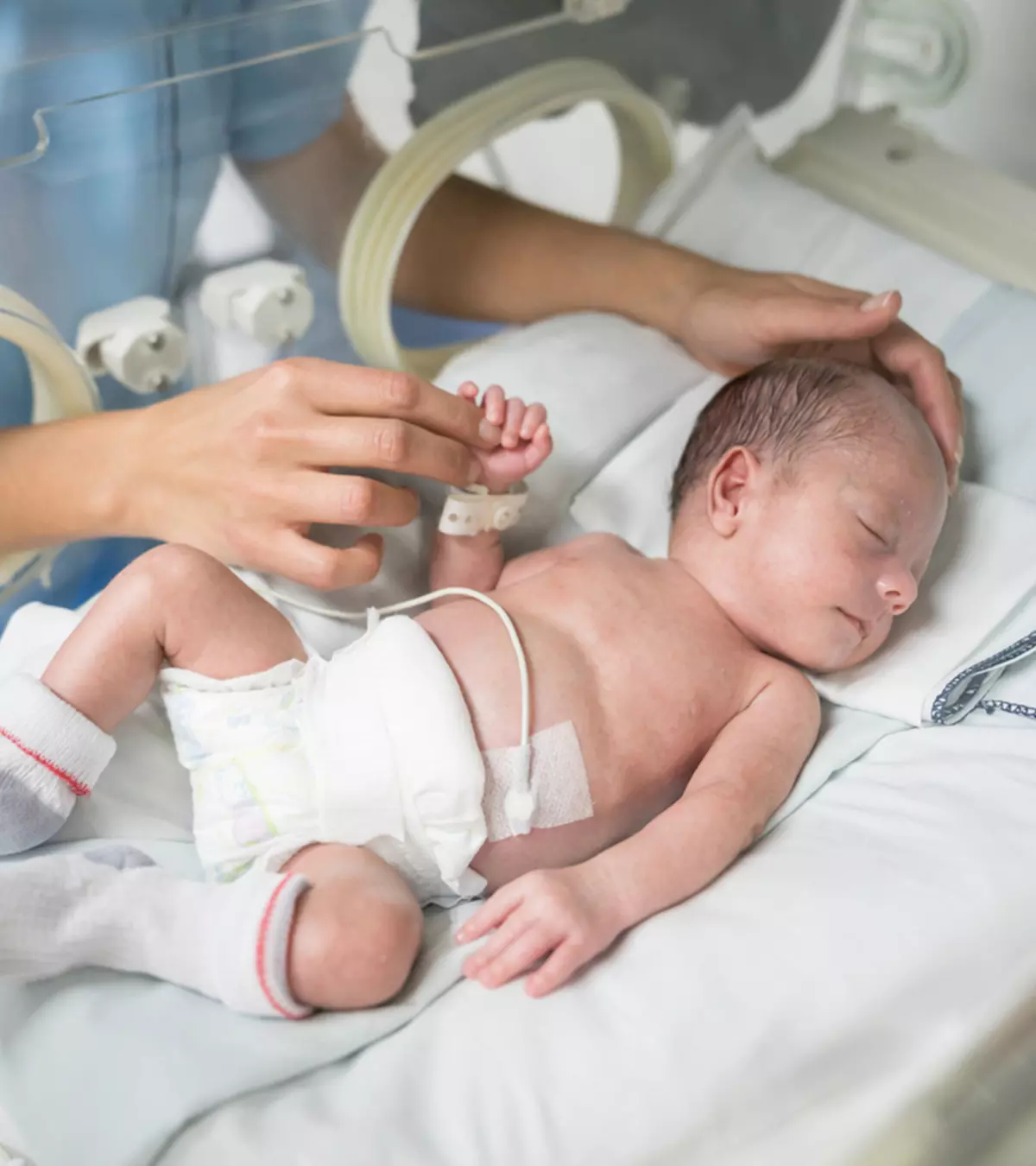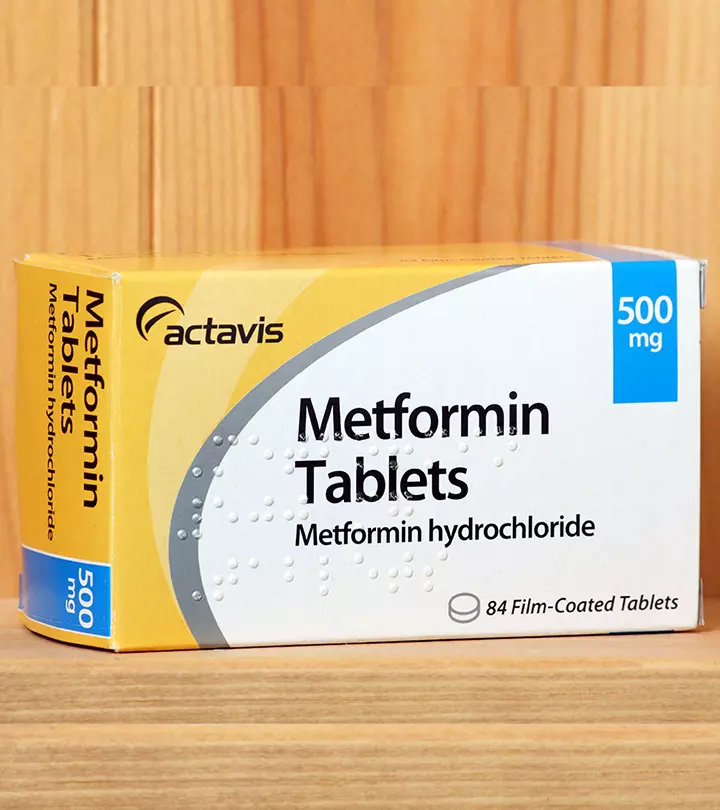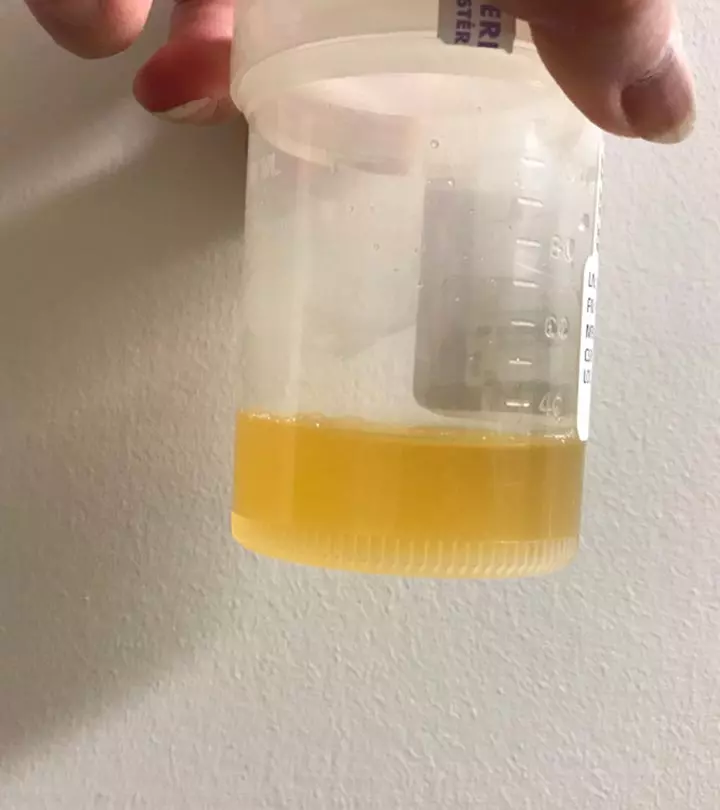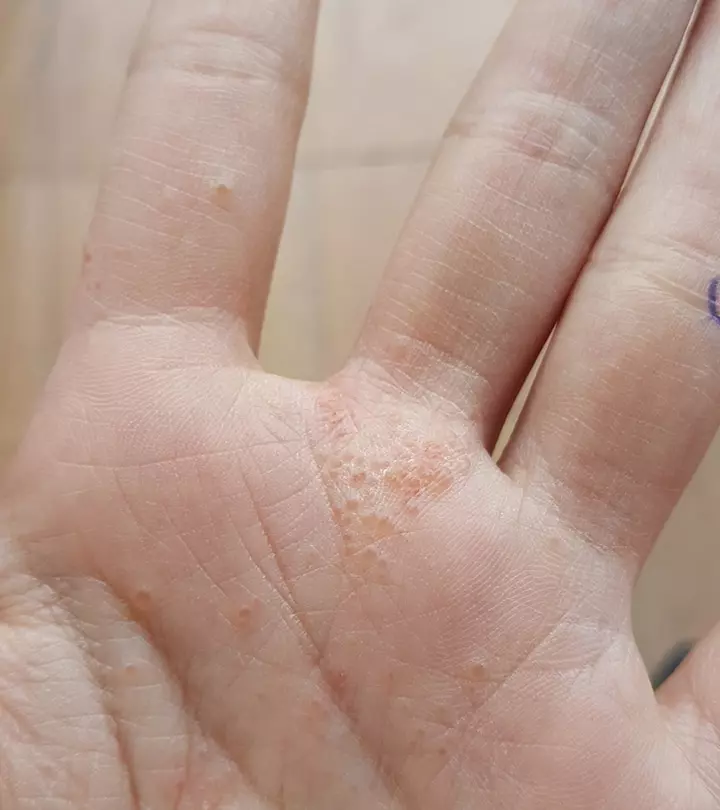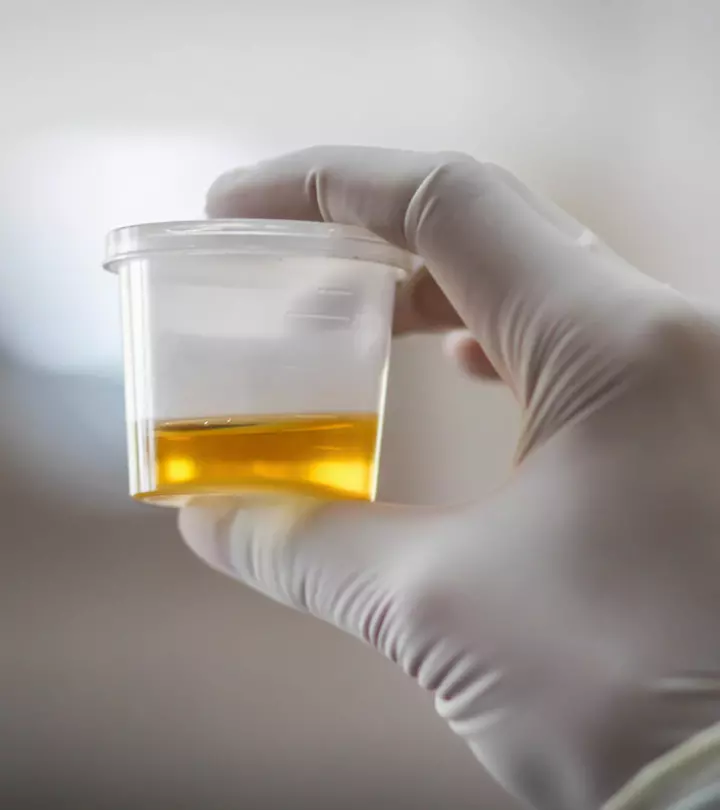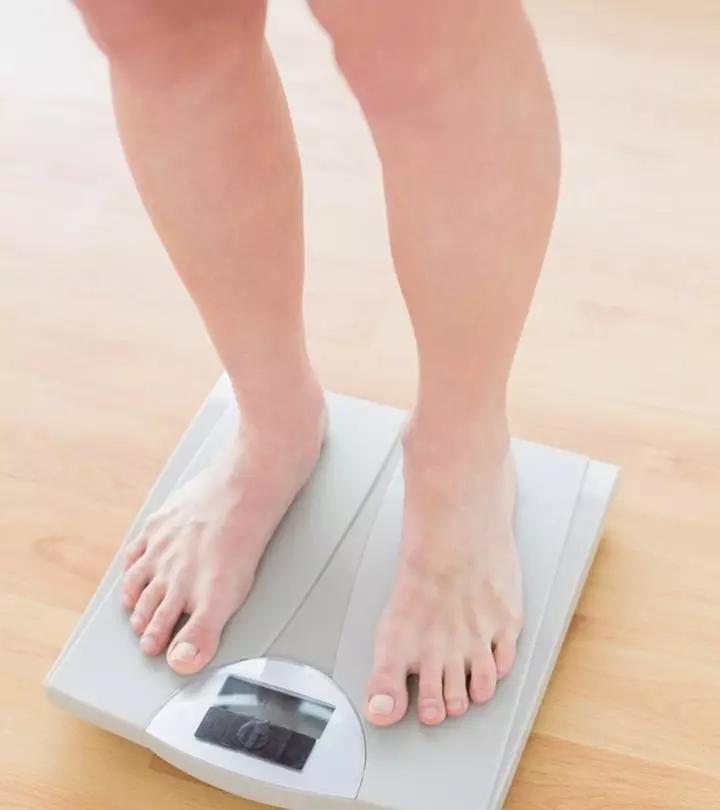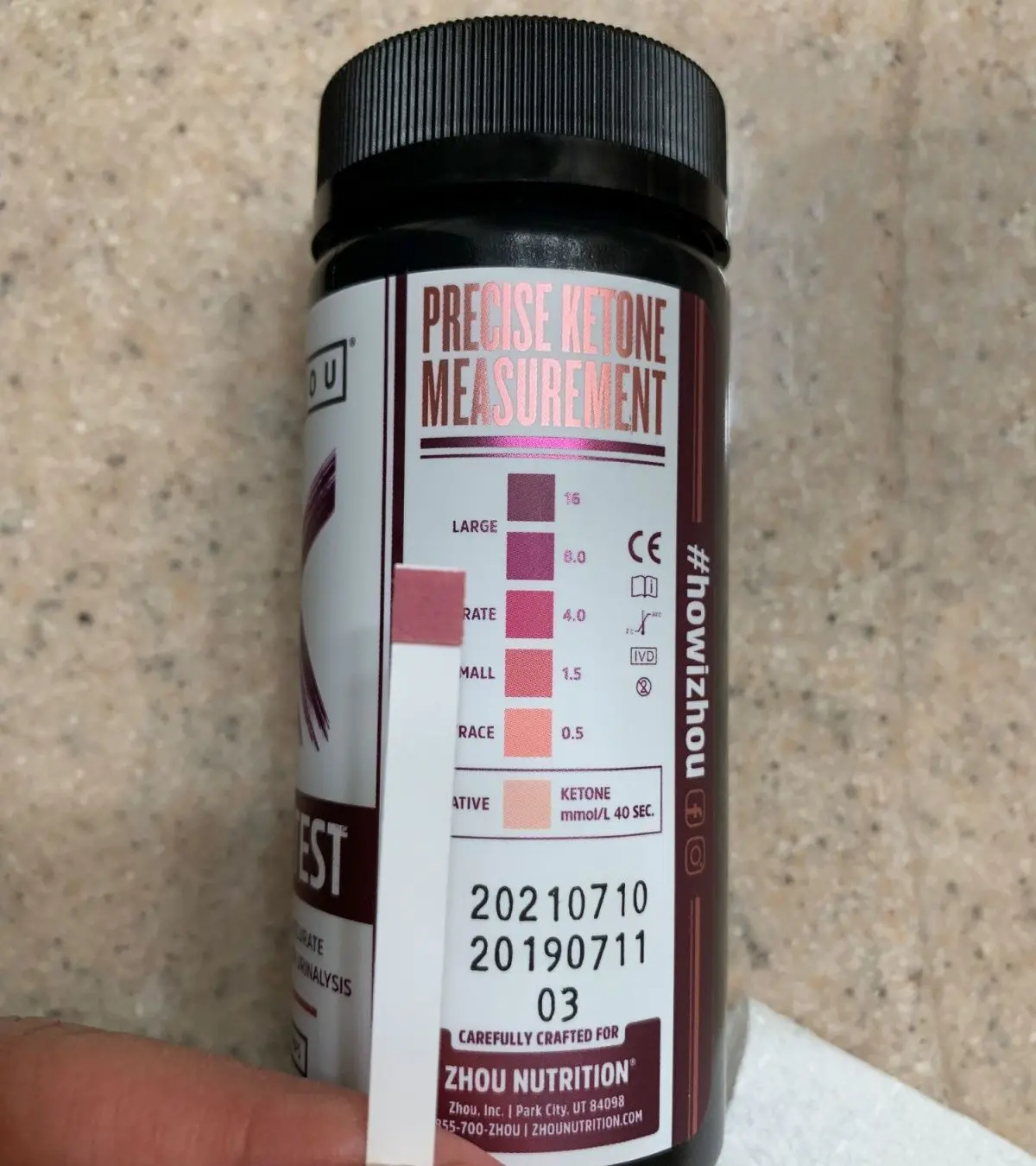
Image: Shutterstock
Ketones are produced when the human body uses fat reserves instead of glucose to produce the necessary energy to function, a metabolic state known as ketosis. But why may you find ketones in urine during pregnancy? The presence of ketones in the urine is termed ketonuria (1). The hormonal changes of pregnancy may affect the body’s resistance to insulin, affecting glucose metabolism (2). This change prevents the cells from using the glucose in blood sugar to produce energy. Instead, it leads to the cells using stored fat to produce energy, resulting in ketone production. Read this post as we explain the causes, treatment, prevention, and implications of ketonuria during pregnancy.
Key Pointers
- Ketones in the urine can be detected throughout the pregnancy.
- Gestational diabetes, a low-carb diet, or fasting may cause ketones in urine during pregnancy.
- A urine-based dipstick test and some blood tests can identify a high ketone level in a pregnant woman’s urine.
- The treatment for ketonuria during pregnancy varies depending on the cause.
- If you have trace quantities of ketones in your system, a slight change in your diet and lifestyle can help.
Are Ketones In Urine Normal During Pregnancy?
Studies suggest that ketonuria (ketones in urine) is a common finding during pregnancy (3). If the concentration of ketone bodies is less than 0.5 millimoles per liter, it is considered normal during pregnancy. A higher level of ketones may occur due to factors such as exercising for too long, having an improper diet, or taking a ketogenic diet (4). A small study conducted on 187 pregnant women showed that up to 22% of women had some amount of ketonuria during pregnancy (1). So, if you find traces of ketones on and off during pregnancy, then it might not be linked to issues such as gestational diabetes.
However, excessive ketones in urine for a long time or regularly could be an indication of gestational diabetes. Your doctor is the best person to understand and interpret whether the ketones in your urine indicate an adverse maternal condition, such as poor renal function, because if the level of ketones goes up, it may lead to diabetic ketoacidosis (DKA), a severe complication that could affect the mother and the baby (3) (5).
What Causes Ketones In Urine During Pregnancy?
During pregnancy, ketones can develop in urine if you (6) (7):
- Did not eat properly on the previous day
- Missed your meals or bedtime snack
- Are on a low-carbohydrate diet

- Are fasting during pregnancy
- Have extreme morning sickness and diarrhea that leaves you dehydrated
- Have any underlying illness or infection
- Did strenuous exercise on the previous day
- Have gestational diabetes
- Have pre-existing uncontrolled diabetes
- Are dehydrated
Gretchen Fleener, a mom of two, learned about ketones when she was diagnosed with gestational diabetes during her second pregnancy. Recollecting her journey, she says, “I already guessed that having too much sugar would send too much to the baby, making the baby gain weight. ” I didn’t realize that having too FEW carbs would also send “ketones” to the baby.
“I was not supposed to cut out ALL sugar… I just had to have a specific amount of grams at specific times of the day. It is why you have to make sure to have snacks every two to three hours throughout the day between meals to prevent your body from sending ketones to the baby (i).”
 Quick fact
Quick factCan Ketones Harm Your Baby?
Yes, they can, but only when your test results show abnormal ranges consistently. Studies show that ketones can easily cross the placentaiA temporary organ formed near the uterine wall during pregnancy to provide nutrients and oxygen to the fetus and affect the fetal central nervous system. It showed embryo growth abnormalities, reduced volume, and distortion of the internal organs.
The studies have also shown a reduction of the cerebral cortex volume, corpus callosumiA group of nerve fibers that act as a medium of connection for the left and right hemispheres of the brain , hippocampusiA brain structure within the temporal lobe associated with learning and memory functions , larynxiA muscular organ situated between the nose and the lungs that manages voice and sound , lateral brain ventricles, and thymusiLocated behind the breastbone, it is a gland that supports the T cells, which are crucial for the immune system . However, the studies on the influence that ketones have on fetal development are limited (6).
In any case, you can test for ketones in urine at home and track the ketone level on an everyday basis.
How To Test For Ketones In Urine?
As high levels of ketones in urine might indicate an underlying clinical cause, your doctor might recommend a clinical diagnosis if they notice some of the below symptoms.
- High blood glucose levels
- Unusual thirst
- Fatigue
- Frequent vaginal and bladder infections

Lab tests for ketones in urine include urine-based dipstick tests, known as ‘spot test,’ and blood ketone tests. For the blood sample, the doctor collects capillary blood via a finger prick (8). In the case of urinalysis, the healthcare provider will give you a ‘clean catch kit,’ which includes sterile wipes and a container for urine sample collection. Before the sample collection, the doctor may also suggest fasting and avoiding certain drugs that may interfere with the results. The steps for urine collection include (3):
- Wash and clean your hands and dry them properly.
- Open the sterile container; do not touch the inside of the cup.
- Clean your vagina using the sterile wipes.
- Start urinating in the toilet and stop after a few seconds.
- Now, urinate in the container; at least one to two ounces of urine sample is needed for the test.
- Place a cap on the container.
- Finish urinating, wash hands, and give the cup to the healthcare professional.
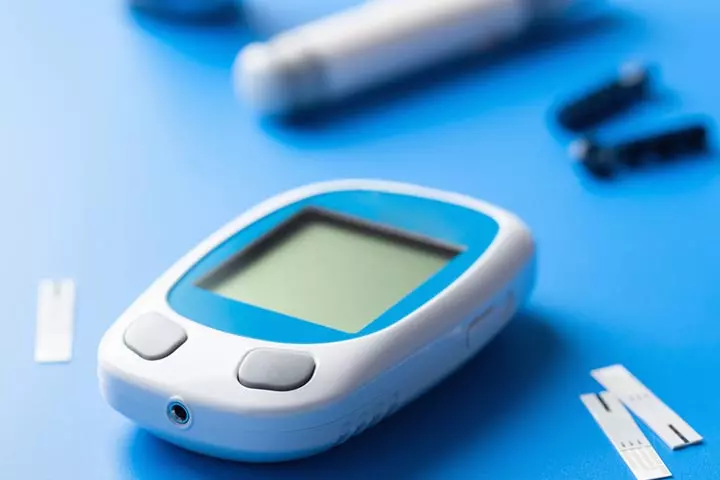
Testing ketones at home
You can monitor the ketones in your urine using the dipstick test available at various pharmacies. Use it on the first urine of the day for the most accurate result. Ideally, the reading should be negative to trace (6).
Take the urine sample in a clean container and dip the strip into the sample. Take it out and leave it aside for a few minutes. When the color of the strip changes, compare it to the color chart mentioned on the kit bottle as “negative,” “trace,” “small,” “moderate” or “large” (6). If the ketone level in the urine is moderate or large, then, seek your doctor’s advice (3).
The ketone urine test is used to detect an already existing condition of ketonuria. Your doctor might prescribe blood monitoring for blood glucose levels to determine if you are having gestational diabetes. If your doctor finds out that you have gestational diabetes, then they would recommend diet and lifestyle changes to keep the blood glucose levels normal throughout the pregnancy.
The section below throws light on some preventive measures to control the ketone levels in urine during pregnancy.
What’s The Treatment For Ketones In Urine?
Based on the test results of the diagnostic tests, your doctor might prescribe the following treatment options.
- If you are showing trace amounts of ketones and if they are due to vomiting or changes in diet, then it would resolve on its own.
- If your blood glucose levels indicate gestational diabetes, your doctor might prescribe some dietary changes or metformin drugs and insulin during pregnancy (7).
- If the ketonuria is due to infection, your doctor might prescribe medications, which are safe during pregnancy, to treat the infections.
- The doctor may also prescribe drugs for nausea or an intravenous (IV) fluid hydration if you’re experiencing excess vomiting (7).
Monitoring ketone levels and consulting your healthcare provider regularly is essential to help prevent complications.
 Caution
CautionHow To Prevent Ketones In Urine?
Here are a few simple steps to keep your ketones at a healthy level (6) (7):
- Never skip meals
- Eat three snacks and three meals every day
- Include protein in your diet
- Drink plenty of water and other fluids to be hydrated
- Have a snack before bedtime
- Exercise and stay active to reduce the risk of gestational diabetes
- Do not cut down on carbohydrates during pregnancy, rather eat various sources of carbohydrates, such as rice, pasta, and oats
A blogger and mother of a girl shares how she managed her ketone levels in pregnancy when she got diagnosed with gestational diabetes during her 32nd week of gestation. She says, “Early in my new routine, ketones started to show up in my urine at my hospital check ups. Ketones are produced when the body burns fat stores. There can be a number of reasons for this with gestational diabetes. But in my case, it was because I restricted carbs too much early on. So, the advice from my diabetes team was to add more carbohydrate back into my diet – I enjoyed that check up enormously and the adjustments I made worked (ii).”
 Health fact
Health fact
Frequently Asked Questions
1. Why do I have ketones in my urine if I am not diabetic?
Diabetes is one of the risk factors for ketones in the urine. Even non-diabetic people may develop ketones in urine if their body utilizes fats instead of glucose to keep functioning. Other reasons for non-diabetic people to have ketones in urine can be chronic vomiting, extreme workouts, eating disorders, or a low-carb diet (10).
2. Can not eating cause ketones in urine?
Yes. Starving or not eating for long durations is believed to be one of the causes of ketones in the urine.
3. What infections cause ketones in urine?
Infections such as urinary tract infection (UTI), pneumonia, COVID-19, and some skin infections, may lead to the presence of ketones in urine, especially in diabetes-related ketoacidosis (11) (12).
4. Can dehydration cause ketones in urine?
Dr. Ila Dayananda, board-certified obstetrician/gynecologist from Brooklyn, New York, says, “The liver produces ketones during energy production as fat is burned for energy fuel. Dehydration can increase ketones in urine when the body doesn’t have enough fluid to dilute and excrete them as waste. A dehydrated body will try to compensate by breaking down fat stores for energy, which increases ketones.”
Although ketones are present in minute amounts during pregnancy, excessive ketones in urine during pregnancy over an extended period could indicate gestational diabetes. While ketones in trace amounts can be corrected with diet and lifestyle changes, higher ketone levels in the urine necessitate immediate medical treatment. Early treatment will also reduce yours and your baby’s chances of experiencing any pregnancy issues. Avoiding skipping meals, having frequent meals in intervals and protein-rich foods, exercising, and being physically active could also help to prevent excess ketones when pregnant.
Infographic: More About Diabetic Ketoacidosis
Diabetic ketogenesis in pregnancy (DKP) is a serious condition and may be life-threatening if left untreated. Physiological changes during pregnancy may predispose some women with gestational diabetes to DKP. The infographic below tells you more about its symptoms and management protocols. Illustration: Momjunction Design Team
Personal Experience: Sources
MomJunction articles include first-hand experiences to provide you with better insights through real-life narratives. Here are the sources of personal accounts referenced in this article.
i. How I coped with gestational diabetes…over thanksgiving & Christmas!
https://www.idmommy.com/2010/11/how-i-coped-with-gestational.html?m=0
ii. Thirty-three to thirty-eight weeks’ pregnant: what worked for me with gestational diabetes;
https://mum100.wordpress.com/2017/06/28/thirty-three-to-thirty-eight-weeks-pregnant-what-worked-for-me-with-gestational-diabetes/
References
Community Experiences
Join the conversation and become a part of our nurturing community! Share your stories, experiences, and insights to connect with fellow parents.
Read full bio of Dr. Karishma Bhatia
- Dr. Ila Dayananda, a board-certified obstetrician & gynecologist, most recently served as the chief medical officer for Planned Parenthood of Greater New York. She studied medicine and master's in Public Health at Northwestern University Medical School and then pursued an OB/GYN residency at the Beth Israel Deaconess Medical Center in Boston, MA. Dr. Dayananda holds a Family Planning Fellowship at Brigham and Women's Hospital/Harvard Medical School in Boston, MA.
 Dr. Ila Dayananda, a board-certified obstetrician & gynecologist, most recently served as the chief medical officer for Planned Parenthood of Greater New York. She studied medicine and master's in Public Health at Northwestern University Medical School and then pursued an OB/GYN residency at the Beth Israel Deaconess Medical Center in Boston, MA. Dr. Dayananda holds a Family Planning Fellowship at Brigham and Women's Hospital/Harvard Medical School in Boston, MA.
Dr. Ila Dayananda, a board-certified obstetrician & gynecologist, most recently served as the chief medical officer for Planned Parenthood of Greater New York. She studied medicine and master's in Public Health at Northwestern University Medical School and then pursued an OB/GYN residency at the Beth Israel Deaconess Medical Center in Boston, MA. Dr. Dayananda holds a Family Planning Fellowship at Brigham and Women's Hospital/Harvard Medical School in Boston, MA.
Read full bio of shreeja pillai
Read full bio of Rebecca Malachi
Read full bio of Reshmi Das






